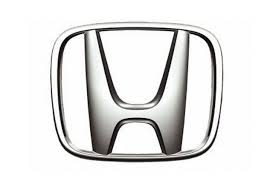Passport 2WD V6-3.2L SOHC (6VD1) (1995)
/Page-1176001.png)
Control Module: Service Precautions
The Transmission Control Module (TCM) can be damaged by:
-
The Electrostatic discharge.
-
The short circuit of some terminals to voltage or to ground.
Electrostatic Discharge Damage Description:
-
Electronic components used to control systems are often designed to carry very low voltage. and are very susceptible to damage caused by
electrostatic discharge. It is possible for less than 100 volts of static electricity to cause damage to some electronic components. By
comparison, it takes as much as 4000 volts for a person to even feel the zap of a static discharge.
-
There are several ways for a person to become statically charged. The most common methods of charging are by friction and induction. An
example of charging by friction is a person sliding across a car seat, in which a charge of as much as 25,000 volts can build up. Charging by
induction occurs when a person with well insulated shoes stands near a highly charged object and momentarily touches ground. Charges for the
same polarity are drained off, leaving the person highly charged with the opposite polarity. Static charges of either type can cause damage,
therefore, it is important to use care when handling and testing electronic components.
CAUTION: To prevent possible Electrostatic Discharge damage:
-
Do not touch the TCM connector pins or soldered components on the TCM circuit board.
-
When handling a MEM-CAL (PROM), do not touch the component leads, and do not remove integrated circuit from carrier.
-
Be sure to follow the guidelines listed if servicing any of these electronic components:
-
Do not open the replacement part package until it is time to install the part.
-
Avoid touching electrical terminals of the part.
-
Before removing the part from its package, ground the package to a known good ground on the Vehicle.
-
Always touch a known good ground before handling the part. This step should be repeated before installing the part if the part has been
handled while sliding across the seat, while sitting down from a standing position or while walking some distance.
INFORMATION ON TCM
The Transmission Control Module (TCM) is located in the driver compartment and is the control center of the electronic Transmission control
system.
The TCM must be maintained at a temperature below 185°F (85°C) at all times. This is most essential if the Vehicle is put through a paint baking
process. The TCM will become inoperative if its temperature exceeds 85°C (185°F). Therefore, it is recommended that the TCM be removed or
that temporary insulation be placed around the TCM during the time the Vehicle is in a paint oven or other high temperature process.
The TCM is designed to process the various inputs and then respond by sending the appropriate electrical signals to control Transmission upshift,
downshift, shift feel and Torque Converter Clutch engagement.
The TCM constantly interprets information from the various sensors, and controls the systems that affect Transmission and Vehicle performance.
By analyzing operational problems, the TCM is able to perform a diagnostic function by displaying DTC(s) and aid the technician in making
repairs.
PROM/MEM-CAL
Information for a specific Engine and Vehicle is programmed using an integrated circuit called a Programmable Read-Only Memory (PROM). It
is also called a Memory Calibrator (MEM-CAL). This allows one model of controller to be used for many different vehicles. The PROM is
located inside the TCM and has information on the Engine, Transmission, calibration., etc. While one TCM part number can be used by many
Vehicle lines, a PROM is more specific and must be used only with the right vehicles. For this reason, it is very important to check the latest parts
and Service Bulletin information for the correct part number when replacing a PROM.
